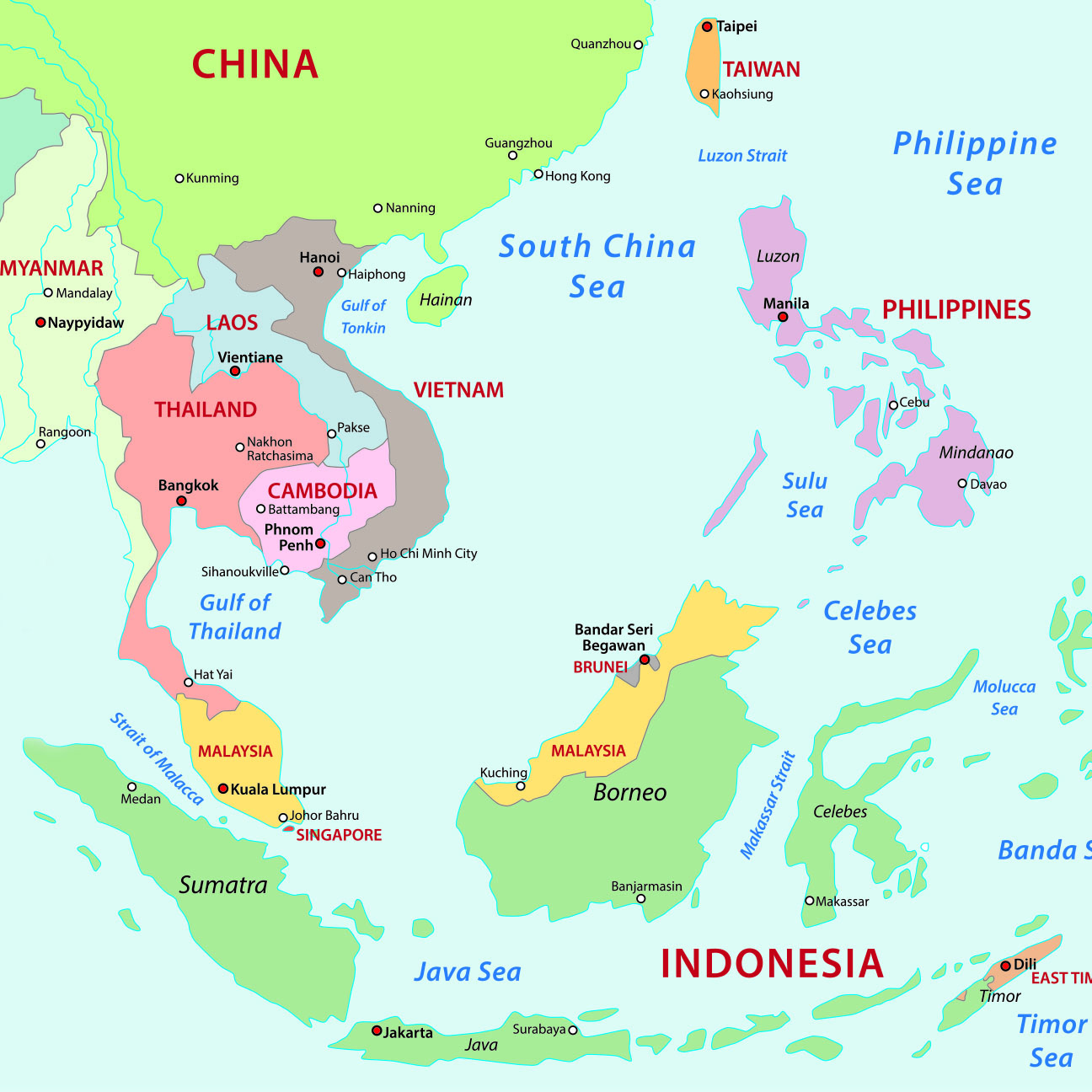South China Sea ruling and its implications
Jonathan MillerTuesday 1 November 2016
JONATHAN MILLER
In July, the Permanent Court of Arbitration (PCA) in The Hague issued its ruling in the high profile dispute between the Philippines and China. The case related to Manila’s right to exploit natural resources in the Exclusive Economic Zone (EEZ) extending from territory it claims in the South China Sea. The long-anticipated ruling in favour of the Philippines is widely viewed as an authoritative denial of Beijing’s expansionist territorial claims in the South China Sea based on its ‘nine-dash line’ (which outlines the area claimed by China).
During the final ruling, the five-judge tribunal dismissed China’s historical claim to the key waterway, through which $5tn in goods pass each year. The tribunal noted that China’s claim was unlawful under the 1982 United Nations Convention on the Law of the Sea (UNCLOS). The tribunal also ruled that China had infringed on the Philippines' economic and sovereign rights in the disputed waters.
China’s recent land reclamation activities, in support of its expansive nine-dash line, have fundamentally altered the status quo in the region. While other states, including Vietnam and the Philippines, have also engaged in land reclamation, the speed and intent to militarise is not comparable with Beijing’s.
‘‘The dispute actually offers an opportunity for the two powerful parties to set an example for the rest of the world
Hans Corell, former Under-Secretary-General for Legal Affairs at the United Nations and Chair of the IBA’s Human Rights Institute
The ruling is binding on both states – which are party to UNCLOS – but there seems to be little appetite in Beijing to accept the PCA decision. Chinese authorities called the ruling a ‘waste of paper’ and have indicated that they do not accept the court’s jurisdiction. They believe that historical and sovereign rights should trump any determination made by the PCA. Indeed, there has been little indication that the decision has resulted in any fundamental shift in Beijing’s calculations regarding the South China Sea.
Nevertheless, some view the ruling as an opening to a resolution. Hans Corell is former Under-Secretary-General for Legal Affairs at the United Nations and Chair of the IBA’s Human Rights Institute. ‘As a matter of fact,’ he says, ‘if a dispute is politically sensitive (like the one between China and the Philippines) it can be a relief for both sides to refer the dispute to a court that can resolve the matter. And, irrespective of the outcome, such action by the parties would command respect. Seen in this perspective the dispute actually offers an opportunity for the two powerful parties to set an example for the rest of the world.’
|

|
|
Hans Corell |
But, it does not appear that China is close to accepting the decision. In addition to China’s resistance to the ruling, Beijing has been successful in splitting opinion in the Association of South East Asian Nations (ASEAN) on the need to follow the PCA decision. During the last ASEAN summit earlier this year, the ten-member bloc seemed at loggerheads about how to view the ruling. Deep divisions – especially due to states with heavy ties to China like Cambodia and Laos – resulted in a watered-down communiqué that left out any reference to the ruling.
|

|
|
South China Sea and surrounding area |
Even if the ruling is not adhered to, it remains significant for several reasons. First, the ruling has – very publicly and authoritatively – laid out a decision that demands Chinese attention. Beijing might be able to protest the decision but it cannot ignore it altogether and its response has repercussions for its international reputation. As Gregory Poling, Director for the Asia Maritime Transparency Initiative run by the Center for Strategic and International Studies, notes: ‘The PCA ruling will have enormous impact on future jurisprudence and on the perceived legitimacy of other claims in the South China Sea and around the world.’
Another reason for the ruling’s significance is that it rings into sharp focus China’s status in UNCLOS – a convention that the country benefits from. Peter Dutton is Director of the China Maritime Studies Institute at the US Naval War College. ‘There are many ways by which China derives benefits from the convention’s operation,’ he says, ‘such as the guarantee of resource rights in its exclusive economic zone and on the continental shelf, the assurance that its ships have the right to freely navigate around the globe, and a seat for a Chinese judge on the International Tribunal for the Law of the Sea.’
In addition, the ruling is not simply a rebuke of China but has implications for other states – both regionally and globally. Vietnam and the Philippines also have engaged in land reclamation activities in the South China Sea – which have been deemed invalid. Moreover, Japan – a prime geostrategic rival for China – also faces new questions as a result of the PCA ruling. For example, the ruling could lead to a legal challenge over Japan’s administration of Okinotorishima, a submerged reef with a man-made construction on top, that lies about halfway between Guam and Taiwan. Taiwan and China have both disputed Tokyo’s claim.
Finally, the ruling contributes to the sentiment that Beijing is looking to push back against global governance and the legal institutions that it sees as rigged towards Western countries that established most of them. The international community will closely scrutinise the Chinese approach on the issue over the coming months.